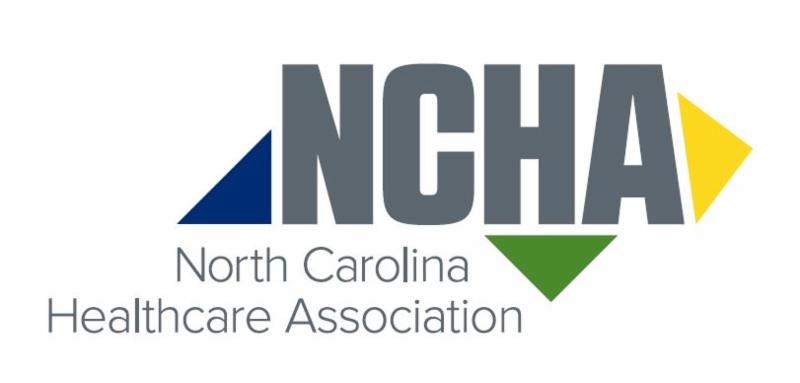SAVE THE DATE!
SECOND ANNUAL RURAL DAY
MAY 29, 2018
Mark your calendars now for the second annual Rural Day, coming
May 29-30.
You don't want to miss this opportunity to stand with rural citizens from across the state and let your voice be heard by our state leaders.
This year's event will feature even more content about the most important policy issues facing rural North Carolina. Join us on
Tuesday, May 29, to hear from top state leaders and dig deep into topics like broadband, health care, and entrepreneurship. Then join us for a celebration at our place on Tuesday evening and then meet with your representatives on
Wednesday, May 30, to let them know how these issues matter to you.
Stay tuned: More details coming soon, along with registration info, but for now, save the date!
|
RURAL ROAD TRIP UPDATE
80-county tour coming to a close this spring
Last spring, Patrick Woodie and John Coggin set out on a quest: visit each of the 80 counties served by the Rural Center and meet with community leaders - elected officials, business leaders, health-care workers, educators, and civic champions - to hear what was going well, and what major issues need to be tackled by a statewide network of rural advocates.
We are close to finishing this grand tour of North Carolina! We have hosted meetings in every corner of the state, from Murphy to Sparta to Bolivia to Nags Head. What have we learned? North Carolina's rural communities are vibrant places, brimming with entrepreneurs creating opportunity, teachers helping launch the next generation, and leaders passionate about making their communities better places.
We've also found that while every county is distinct, there are many unifying struggles. Lack of access to affordable high-speed internet is a hindrance to development in almost every county we've visited. The need for qualified teachers, capable health-care professionals, and workforce housing touches most every community.
Our goal by the end of this journey is to have a deeper sense of the county-level nuances of the issues facing rural North Carolina, as well as to have identified areas in which the Rural Center can be most effective at gathering rural citizens to speak up for statewide solutions.
If we have not yet visited your county, please let us know! Contact
John Coggin
to schedule a community forum in your town.
|
 |

RURAL COUNTS SPRING WEBINAR:
WEDNESDAY, MARCH 21 @ 2:00 P.M.
The Master Plan for Water & Wastewater Infrastructure
If you live in rural North Carolina, you know that maintaining and improving our water and wastewater systems are critical needs for our communities. That's why the Rural Center's 10 Rural Counts strategies for economic development identifies accelerating modernization of essential rural water and wastewater infrastructure as one of our top priorities for state and federal advocacy.
What are
the top challenges facing our rural communities? What is already being done across the state to plan for the future, create regional economies of scale, and promote and expand best practices? Importantly, what is the state's role in funding and supporting local water infrastructure?
For our spring 2018 Rural Counts webinar, we welcome two experts from the NC Department of Environmental Quality to share with us what's going on in North Carolina to meet these critical needs.
The North Carolina State Water Infrastructure Authority (Authority) was created by the North Carolina General Assembly to assess and make recommendations about the state's water and wastewater infrastructure needs. One of the Authority's key tasks was to define and address these needs through a first-of-its-kind State Water and Wastewater Infrastructure Master Plan. The Authority immediately recognized that the Master Plan needed to address issues beyond just the cost of water infrastructure. A holistic look at the challenges facing public water and wastewater utilities revealed that the state must also help utilities address the organizational and financial management challenges that may contribute to their physical infrastructure limitations.
Join us as we provide advocacy updates and learn more about the Master Plan for Water and Wastewater Infrastructure.
The Master Plan for Water and Wastewater Infrastructure
Wednesday, March 21
2:00 p.m. - 3:30 p.m.
Panelists:
Francine Durso
Senior Project Manager
Division of Water Infrastructure
Jennifer Haynie
Environment and Special Projects Supervisor
Division of Water Infrastructure
John Coggin
Director of Advocacy
NC Rural Center
|
 DISPATCHES FROM DC DISPATCHES FROM DC

The Rural Center has recently launched its new website, which gives us exciting new opportunities for connecting with you in real time about what's going on in public policy in DC and in Raleigh.
Follow updates from Debby Bryant, our federal consultant, on our
Dispatches from DC page on the website.
This month, we have recent updates on:
- New long-term recovery funding for communities rebuilding after Hurricane Matthew
- Details on the bipartisan budget deal struck by Congress earlier this month
You'll also be seeing updates when new posts appear on
Twitter, so if you're not following us, click that button now!
|
 |
 |
 |

THE ECONOMIC IMPACT OF HOSPITALS & HEALTH SYSTEMS IN NC
Upcoming NCHA event at Western Carolina University
Hospitals and health-care systems are a vital economic force in North Carolina.
The Economic Impact of Hospitals and Health Systems in North Carolina
, produced by RTI International and the NC Healthcare Association, examines the multiple ways health care influences local economic development: creating local jobs and educating the future workforce, attracting and retaining business, and providing essential unreimbursed services to the community.
Come learn more at this interactive presentation for community leaders throughout western NC.
The Economic Impact of Hospitals & Health Systems in NC
Presented by Stephanie McGarrah,
Vice President of Policy, NC Healthcare Association
Friday, March 23
11:30 a.m. - 1:00 p.m.
Western Carolina University
Hinds University Center
245 Memorial Drive
Cullowhee, NC 28723
*lunch will be served*
Presentation will include a panel discussion with health system leaders throughout western NC.
|

COMPETITIVE ENERGY SOLUTIONS FOR NC
Important Info from NCSEA on HB589
A lot has changed in the 10 years since the passage of Senate Bill 3 and the creation of North Carolina's Renewable Energy and Energy Efficiency Portfolio Standard (REPS). Renewable energy and energy efficiency-related technologies have advanced dramatically, with rapid cost declines. North Carolina is now home to more than
34,000 clean energy jobs across a nearly $7 billion industry
. Building on this success, from 2016-17 a group of energy stakeholders met over 30 times to work out a draft bill intended to advance the development of renewable energy in North Carolina.
Specific provisions of the legislation include:
- Renewable Energy Procurement Program for major military installations, public universities, and other large customers.
- Legalizing the leasing of renewable energy systems in Duke Energy service territory and allowing Duke Energy to participate in the leasing market.
- Creating a new solar rebate program that will offer rebates to Duke Energy's residential, commercial, and nonprofit customers.
- Requiring Duke Energy to create a community solar program.
- Directing a study to understand the values and benefits that energy storage can provide to North Carolina's grid.
- Create a Competitive Procurement for Renewable Energy program that will more than double the amount of renewable energy in Duke Energy's North Carolina service territories.
For more information about HB 589 impacts and opportunities for your community, please contact the NC Sustainable Energy Association ([email protected]).
|
|
|
|
|